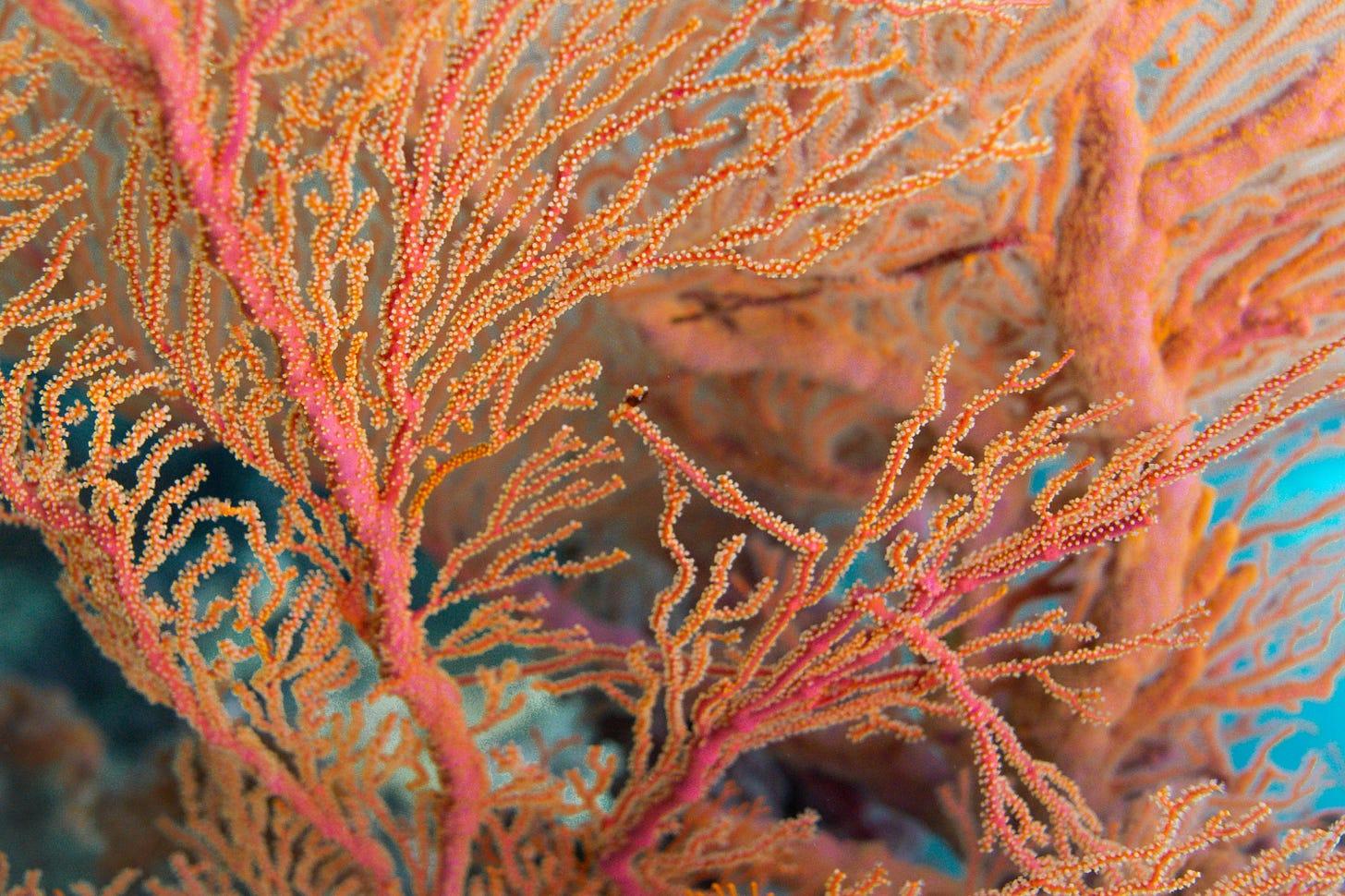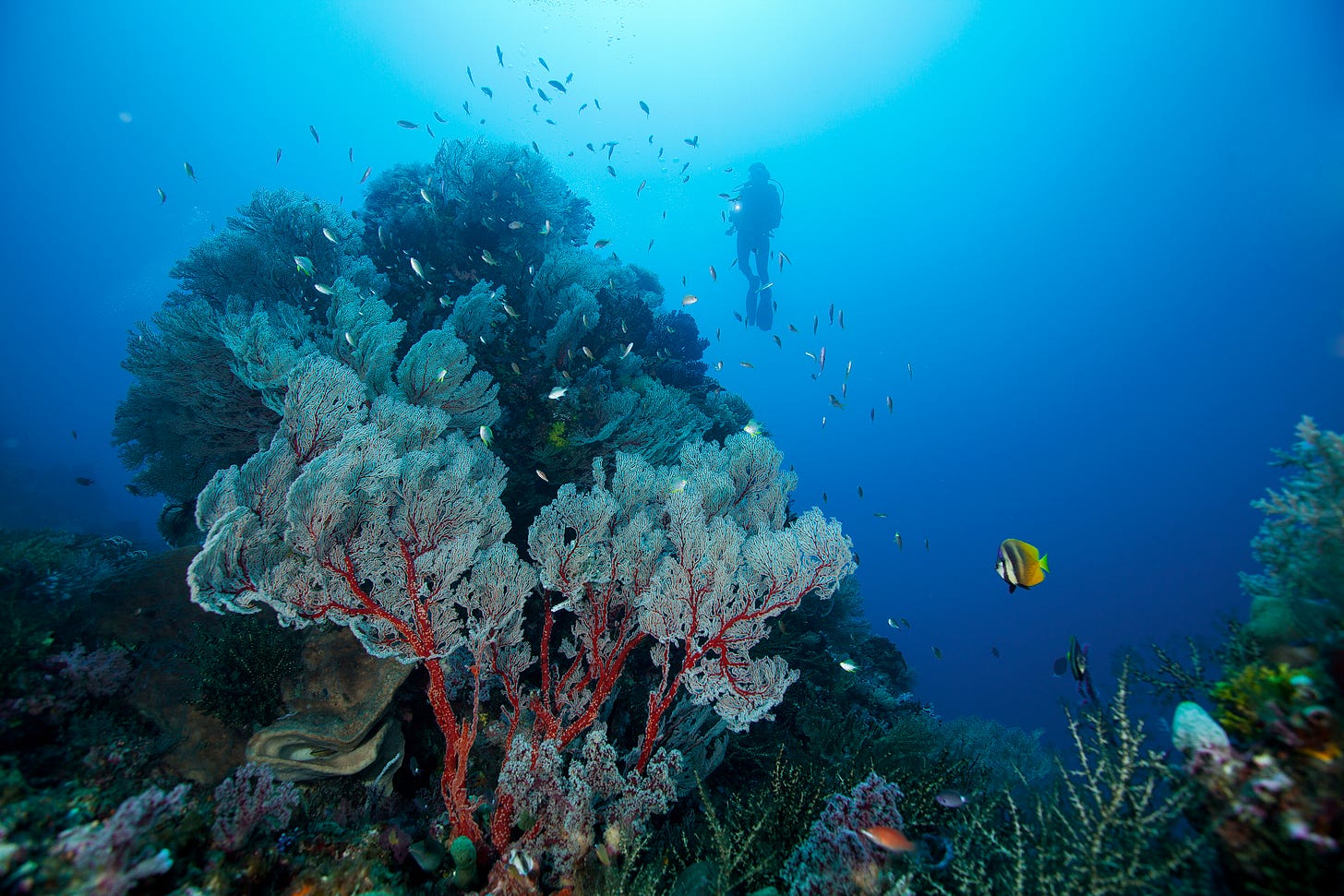AI is divisive. Particularly generative AI – those designed to craft text, data or images. Its capacity to generate misinformation and disinformation at scale runs the risk of distorting public opinion and thus encouraging us to retaliate to ‘fake news’ - as we’ve seen far too many times in recent months and years.
It has been accused of killing creativity, threatening job security and people's privacy. And yet, while the debate rages on about AI's impact on society, one area where its potential for good is becoming increasingly clear is: environmental conservation. Coral reef conservation, specifically.
ReefCloud, an open-access platform launched by the Australian Institute of Marine Science (AIMS), is a prime example of how AI can be harnessed to protect fragile ecosystems and revolutionise scientific processes in the ocean.
The project began when Accenture's global research, development and innovation centre, The Dock, organised a hackathon focused on environmentally friendly artificial intelligence. The winning idea - using AI to monitor, analyse, and protect coral reefs - caught AIMS' attention, leading to the birth of ReefCloud. This innovative platform was designed to quickly and efficiently collect and share observation data, while informing reef management decisions through artificial intelligence analysis.
In an era where cameras are everywhere, global conservationists have been leveraging modern imaging technology to conduct regular in-water monitoring of major coral reef regions; around 70% of the world’s coral reefs are currently monitored. However, the sheer volume of data collected - millions of data points from countless photos - has overwhelmed traditional analysis methods. With current techniques, it could take up to four years to collate and interpret this wealth of information. In the face of the climate crisis, coral reefs do not have four years.
To address this critical issue, AIMS and The Dock created ReefCloud. It combines the speed of cloud computing, AI automation, and the decision-making capabilities of data analysis into a single, powerful solution. The results are astonishing: ReefCloud can analyse reef composition 700 times faster than manual methods and with 80-90% accuracy in estimating reef composition.
The platform's impact extends beyond speed and accuracy too as it has so far processed over 1.3 million shared images and connected more than 200 researchers and users across 24 countries, fostering global collaboration in coral reef conservation efforts. ReefCloud bridges the gap between scientific advice and reef management decisions, helping communities across the world to work together. Its open-access nature democratises AI technology in the environmental sector, making it freely available to researchers and conservationists worldwide.
As ReefCloud continues to evolve, its developers envision expanding its application to other vital marine habitats such as mangroves and seagrass beds. In doing so, ReefCloud is proving that when applied thoughtfully and ethically, AI can indeed be effective in protecting our planet’s most vulnerable habitats and supporting them through their greatest challenges.

Here at Beached we are building a community that can put our brains and resources together to highlight and fund solutions to the problems facing coral reefs and the oceans they live in. I hope you’ll join our humble community and click subscribe for free or support our work by purchasing the paid subscription.
All Beached posts are free to read but if you can we ask you to support our work through a paid subscription. These directly support the work of Beached and allow us to engage in more conversations with experts in the field of marine conservation and spend more time researching a wider breadth of topics for the newsletters. Paid subscriptions allow us to dedicate more time and effort to creating a community and provide the space for stakeholders to come together, stay abreast of each other’s work and foster improved collaboration and coordination.
One day Beached hope to donate a large percentage of the revenue from paid subscriptions to marine conservation organisations and charities to support their work too. Working together, we can reverse the degradation of our oceans.
Amie 🐋





Refreshing to hear a piece of good news on the conservation front and that AI being put to good use this way. Its ability to handle and analyze large datasets, recognize patterns, and make predictions has, it seems, accelerated research.
Fascinated by the marine ecosystem. One of the oldest on Earth and we know so little about it!!